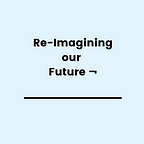Re-Imagining Adult-Child Relationships
When adults interact with children we can notice common patterns. We all know these automatic responses of speaking in high tones we use when talking to a small child (“oh, hello little baby”), or the classic squeezing cheek pinch and you’re so cute.
We can also reflect on how many adults automatically answer with “well done” when a child shows their painting. Are these responses really genuine? Are they really benefiting the growth of the child? In this behavioural pattern there is a sense of hierarchy, with one person assuming rank, whether consciously or subconsciously.
The adult knows and the child is learning? What if we shake these assumptions up and rationalize the ways we address one another? What if we see adult-child interactions as a pure encounter between two equal souls? What if adults would use these encounters as means to rediscovering their true nature? A time when they were more connected, closer to their natural patterns?
A child does not obey societal norms when interacting with others. They act on intuition, and genuine emotion. They come and touch your skin if they feel like it, even though you are a stranger. They feel your arm hair, as they would a domesticated dog. That is how relationships with children can become so deep within such a short period of time. When you are uncovered from all the layers, just following your authentic being.
Imagine children become the soul mirrors of the adults. Imitating their behaviors. Just to give a glimpse to adults. Enabling them to see their conditioning and social normative behaviour. And to feel how this conditioning is limiting their development. What if we looked at children as role models, exemplifying embodiment, creativity, kindness, pure energy and genuine innocence? If then, how would child-adult relationships unfold? And, How would these altered relationships impact the broader way we live and organize our lives?
What would the world look like if our institutions nurtured us to maintain our child-like curiosities? Can you imagine spaces where children are able to apply their curiosities to guide and direct their own learning? Can you imagine spaces for intergenerational learning where children are given space to teach the adults? And adults are open and willing participants? Can you imagine a world where everyone is child-like?
Gradually, in most cases, from childhood to adulthood, we lose touch. We learn to act in certain ways. We are taught what is good and bad. What is ugly or beautiful. We learn what we can and cannot do. What if a child went and squeezed an adult’s cheek and told that adult to sleep better, drink less coffee, eat better, play, be themselves, etc. etc. etc. As crazy as the child mirroring the adult’s behavior may sound, in many instances, it is a gradual reality, where children learn by watching and listening to adults. They learn that it is good to be disembodied. It is normal to do X,Y and Z.
How can we shift our perception and expectations of children and adults to be more aligned with healthy physiological and mental development? Where an adult talks to a child as a fellow, but unique, self-designed learner and shares suggestions/invitations, from their experience, instead of sharing demands/expectations. If this were the case, what would schools look like? What would adult-child relationships look like?
Lead Author: Chiara Bockstahler (first 4 paragraphs)
Dreamlab is an initiative where we dare to encounter children in an unusual realm. The encounter starts as such that children are invited into an empty space where they see adults playing and moving in space. The adults are invited to re-tapp into their authentic selves and the space and becomes their playground. There is no logical approach to play, but everything makes sense. The rational and domestic behavioural patterns are asked to stay outside this space.
During the performance the children are invited to become part of this created dreamworld.
Every single being in space, no matter if adult or child, is a creator of the shared dreamworld. Everyone is playing with his/her ability to respond. We are aiming to create an equal playing field.
Dreamlab is a laboratory of imagination for everyone, regardless of the time you have spent on earth. Imagination is a god-like quality that goes beyond time and space. Being connected through the imagination therefore means to go beyond what we think we know. It invites us to come into a space of the unknown. Unknown means to let go of the supposed certainty about how we think we know the world. Dreamlab is an invitation for everyone to dare to come into this land of the unknown and relax into the unusual moment and to go with what arises from there. Dreamlab is a space where we together shake up the common assumptions on how adult- children relationships are. We blur the definitions on what is an adult and what s/he is supposed to do and what is a child. Instead we mirror each other and discover the child in the adult as well as the adult in the child.
The next DreamLab will be November 14th.
Anchor Author: Daniel Rudolph
Daniel Rudolph is interested in exploring alternative, experiential learning opportunities for people of all ages. He is passionate about forming community, and building public spaces for meaningful, transformational gathering. Currently he is spending a lot of his time learning juggling and facilitating gatherings. He also enjoys writing and sharing poetry. Daniel is a very curious and playful person and is always open for creative collaborations.
